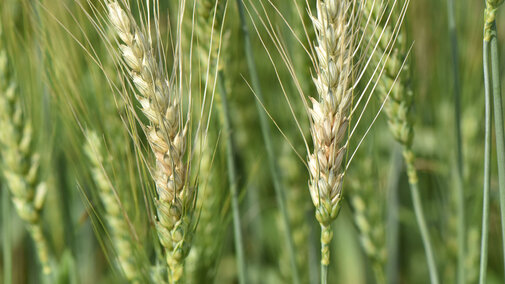During a wheat disease survey in south-central and southeast Nebraska on June 8, trace to low levels of Fusarium head blight (scab, Figure 1) were observed in growers’ fields. Growth stage ranged from soft dough in many fields to hard dough in some fields. The survey was conducted prior to an evening wheat field day in Jefferson County (Figure 2), the first of a series of field days to be conducted throughout the state this week and next week.
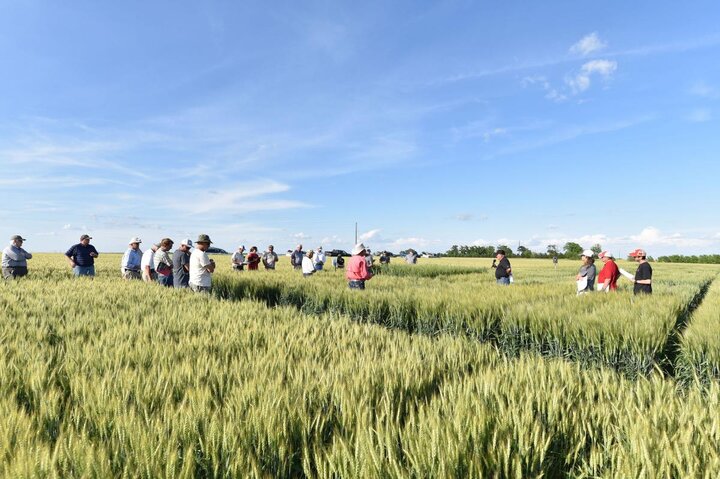
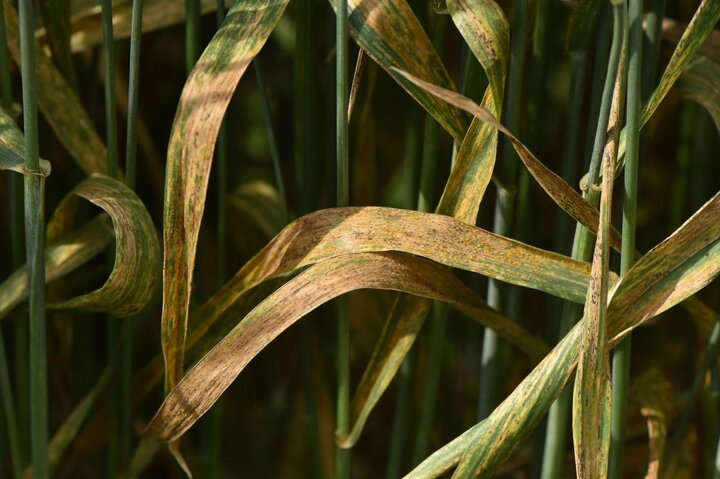
Foliar fungal disease levels were trace to low in fields that were sprayed with a fungicide earlier. In one field that was not sprayed, stripe rust severity was high (Figure 3). Because leaves infected with stripe rust lose water faster than healthy leaves, the majority of the leaves including flag leaves in this field were quickly drying or had completely dried (Figure 4), largely due to the hot weather that has prevailed during the last several days.
Low to moderate levels of bacterial streak (Figure 5) were observed in a field that had been sprayed with a fungicide. Fungicides do not control bacterial diseases.
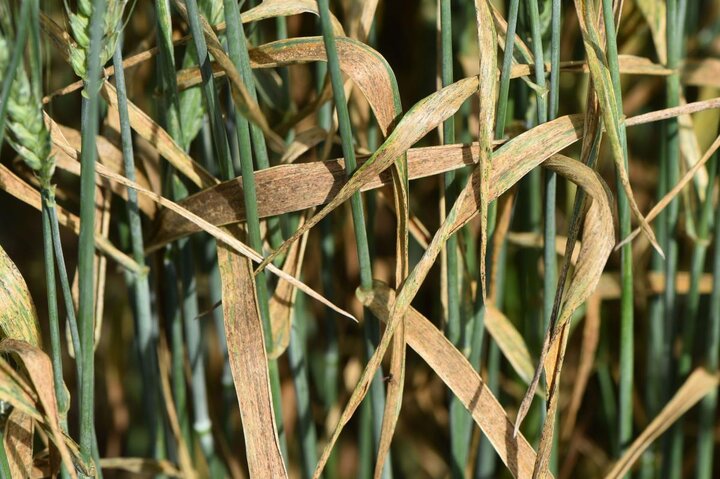
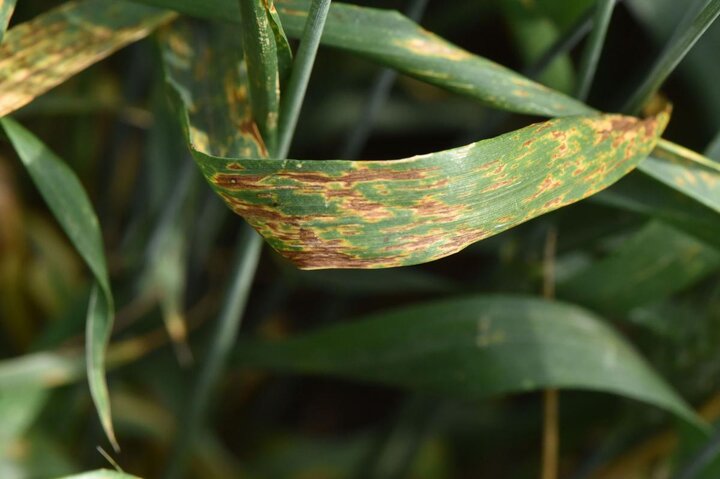
Management
The hot temperatures that have prevailed during the last several days have slowed down the development of stripe rust in areas or regions of the state where the disease was just starting to develop. In south-central and southeast Nebraska where stripe rust had already developed to damaging levels in unsprayed fields during the cool, wet weather that occurred in May, the current hot temperatures have accelerated the drying out of infected leaves, including flag leaves which contribute the most to grain fill.
It is too late to apply a fungicide in the majority of fields in south-central and southeast Nebraska because the wheat crop is past the flowering growth stage. Where wheat is not yet past the flowering growth stage, the decision to apply a fungicide should be based on the presence of stripe rust and especially leaf rust (which is favored by warm temperatures) and moisture from rainfall or irrigation. It is not necessary to apply a fungicide if there is little or no disease and hot and dry weather prevails.
